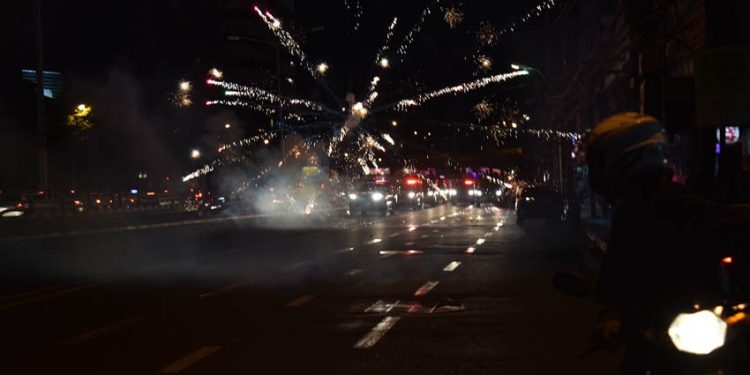THAILAND – Clashes broke out in Bangkok this week between police and protesters rallying against PM Prayut Chan-o-cha’s authoritarian regime. This footage and images come from Bangkok’s Din Daeng area, where protesters responded to police with fireworks and firecrackers. In 2020, Thai youth sparked the largest wave of anti-government protests since the 2014 military coup. But human rights activists say persecutions and systematic harassment have weakened the pro-democracy movement.
The protests were reportedly led by the anarchist group “Thalugas” (which roughly translates to “breaking through tear gas”), who have taken a very active role in past anti-government protests. A multitude of similar protests in Bangkok have occurred in the past, with frustrations with the Thai state running high amongst Thailand’s citizens.
Disintegration of the movement
Over time, the suppression of protests led to the splitting off and formation of various subgroups, explained Praphakorn Lippert from the University of Passau in Germany.
Those sometimes diverged from the movement’s core demands and now represent other interests. This increasingly impedes mobilization for the common cause and has exacerbated the decline of the core movement from 2020. The movement is increasingly fighting internal divisions. “There is no longer a large unified movement, but only actions by various small groups.”
New generation against an old system
But the democracy movement is increasingly dominated by a generational conflict.
“The new fault line is really between the progressive youth who want change, who want reforms, who want the government to respect their rights; and the old conservative elites in politics, but also in business and in the military,”
At their core, the protests are directed against an economic and political system that has been established for decades and has three privileged groups of participants. The first is a razor-thin layer of 1% of the population, which owns two-thirds of all Thai assets, according to the Germany-based Heinrich Böll Foundation. Second is the military, which is also endowed with many financial privileges and is intertwined with state enterprises. And third is the world’s richest monarchy, which continues to exert strong political influence.
The military coup in 2014 further solidified this system. The military sees itself as the guardian of the monarchy, is not subject to civilian control and has taken precautions through its own enforced constitution to weaken the influence of democratic institutions in the long term.




